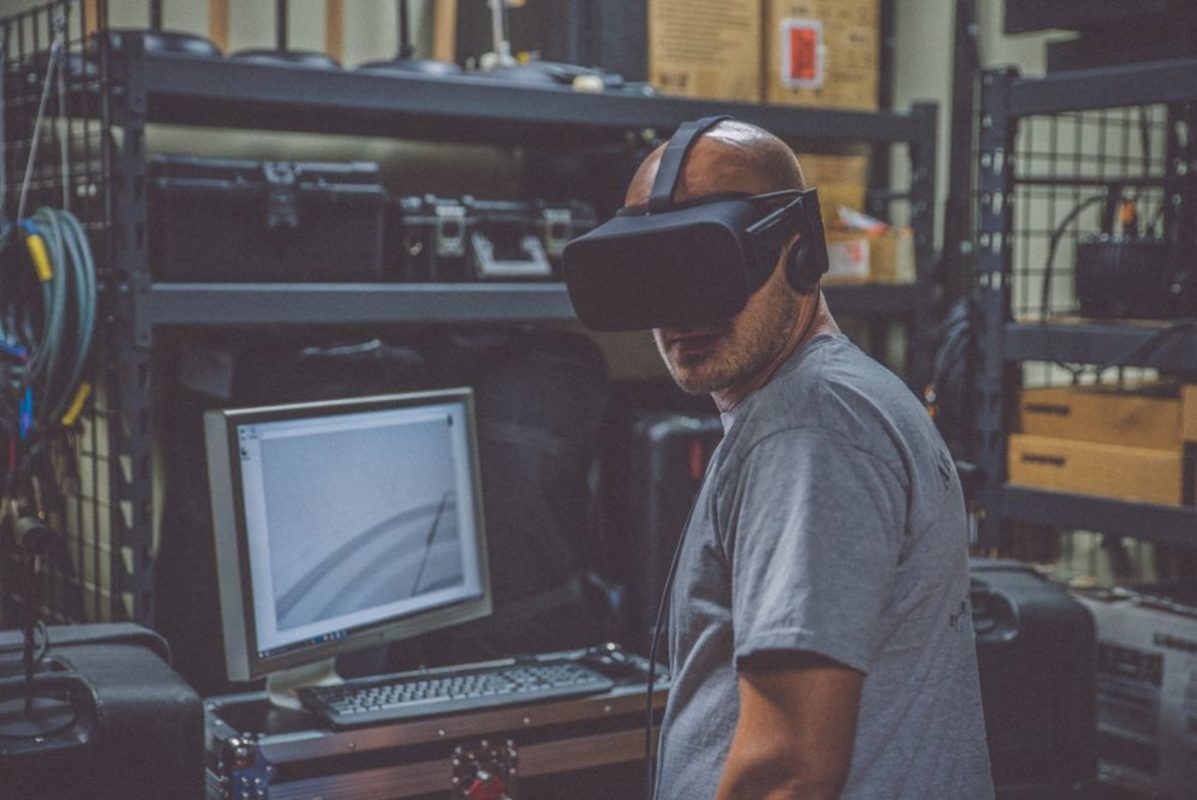Dr. Alex Young, CEO of Virti
Experiential reality (XR) technology is one of the most popular new tools. But how can it be deployed to maximum effect to deliver remote training? And can it really serve to replace in-person training methods? Here’s everything that MD manufacturers need to know.
In the competitive Medical Device (MD) sector, the importance of company Sales Reps cannot be overstated. These professionals are responsible not only for chasing sales leads and closing big deals, but they must also demonstrate new devices to both potential and existing clients.
Bearing in mind the crucial nature of their role, it follows that the training of Sales Representatives is a priority for medical device manufacturers. Sales Reps must be up to date with the technical specificities of an array of complex devices, and confident in how to operate them. But with system updates and new technologies being rolled out on a near-constant basis, ensuring that the correct training can be effectively delivered to a large workforce is no mean feat.
Most recently, continuing COVID-related social distancing measures and travel restrictions have added an extra layer of complexity to med device training delivery. However, companies are well aware that they cannot risk falling behind their competitors in such a fast-paced industry. Many have seized on the momentum of the pandemic response to explore powerful new training solutions.
Experiential reality (XR) technologies, including VR and AR, are one of the most popular new tools. But how can they be deployed to maximum effect to deliver remote training? And can they really serve to replace in-person training methods? Here’s everything that MD manufacturers need to know.
XR’ solutions explained
The process of delivering training on an extended reality platform involves the following steps:
- The MD manufacturer films, independently, with the support of expert creators like Virti, a 360-degree training video
- The video is augmented with animation, interactive elements, dialogue and/or sound
- Decision pathways, quiz questions or exam-style tests are added to the content so thatthe learner’s progress can be assessed
- The content is uploaded to a cloud platform, where it can be accessed by trainees viatheir choice of digital device including mobile phone
- Inbuilt AI tech gathers data on the usage patterns and performance of trainees
This series of steps outlines exactly why XR training is so cost-effective, scalable, and universal. Once the content has been created, it can be used infinitely and updated as necessary; this facilitates an impressive return on investment when compared to in-person training.
Why XR works for Sales Rep training
Insights from core pedagogical theory tell us that immersive and interactive learning methods are by far the most impactful. They have also been proven to be the fastest route to knowledge or skill acquisition.
This explains why XR training has been proven to be many times more impactful than other online or ‘e-training’ programs. Learners are fully immersed in the content – they can ‘practice’ demonstrating the product or operating the technology in a hands-on way – so they build familiarity and confidence at an accelerated rate.
It follows that Sales Reps need to spend much less time completing training when they access it via an XR platform. They can repeat modules on-demand to refresh their skills, and they can choose exactly when, where, and how to access the content. This means less time is wasted, so Reps have more time to actually engage with customers and close deals.
Soft Skill Development
As any experienced Sales Rep will attest, strong interpersonal and communication skills – often called ‘soft skills’ – are an essential requirement for success in the industry. Reps have to build a strong rapport with customers and maintain strong relationships with an array of stakeholders.
These skills – like any other – need to be practiced, so regular training must be provided to help Reps communicate effectively and achieve their sales targets. However, traditional soft skills training is notoriously hard to standardise. It’s subjective nature also makes it difficult to assess.
Virti’s XR soft skills training technology removes the subjectivity from the exercise, deploying sophisticated algorithms and AI tools to drive skill acquisition. Objective measurements – including voice pitch and facial expression – are gathered and scored quantitatively. This data can then be used to provide detailed, bespoke feedback to trainees, so they can become more effective communicators.
This is just one example of the intelligent nature of Virti’s XR training platform. In fact, an array of different data points can be gathered, analyzed and assessed by the AI tech. Managers looking to iterate their training programs can now do so in an informed way, as the platform data can be gathered to provide an overview of learner performance.
2022 will undoubtedly bring a new set of challenges to the medical device industry, as margins are increasingly narrowed and competition soars alongside sector innovation. Whatever happened, trends already suggest that investment in Sales Rep training is set to be more important than ever before. And as we’re already starting to see, the most successful and resilient companies will be those who select best-in-class XR training programs, for which immersivity, interactivity, and intelligence are the new essential features.
Want to learn more about how medical device and pharmaceutical companies can integrate remote and immersive education technology into their business?
Here’s a free eBook surrounding this sector, detailing how VR/AR technologies, combined with AI Virtual Humans can upskill your workers fast.
